By Arben P. Llalla
Part Six
-Greek collaborators, the planners and leaders of the genocide in Chameria (1944-1945). The truth about the collaboration of the Chams with the Germans –
PREFACE
Memorie.al / The period when I started writing the book were from 2008-2016, collecting materials little by little. I found it extremely difficult to find original photographs and some newspapers in the Greek language for the years in question. For about 70 years, the Greek state with its state structures has been feeding the internal and external opinion with lies and writings about what actually happened from 1936-1945, regarding the Albanian minority in Chameria-Southern Epirus.
Continued from the previous issue
CHAPTER IV
The collaboration of Napoleon Zervas with the Germans
Napoleon Zervas and EDES were not alone in the massacres they committed against the Albanian population in Chameria, they enjoyed the support of the Metropolitan of Paramythia, Dorotheos, who, as early as November 1943, had joined the guerrilla troops of EDES. There are photographs where the Metropolitan of Paramythia, Dorotheos, is seen in EDES military clothing. Instead of the Metropolitan of Paramythia, Dorotheos, spreading the word of GOD, the love of man for man, peace among people, he was a direct participant in the massacres of the EDES army against the Muslim Albanian population of Chameria-Southern Epirus.
There are suspicions that the planner of the massacres against the Albanian population in Chameria may have been the Metropolitan of Paramythia, Dorotheos, because he was a good connoisseur of the territory, he personally knew all the elders of Chameria and he spoke the Albanian language. The Metropolitan of Paramythia, Dorotheos, was the right-hand man of Zervas and guided him on every action he had to take in Chameria, as Napoleon Zervas did not know the territory or the people.
Dimitri Naskari, known as Metropolitan by the name Dorotheos, was born in 1905 in the village of Lelova-Thesprotiko in Preveza. He was orphaned at a young age and was raised by his aunt, he died in Athens in June 1959. After the war, Napoleon Zervas turned EDES into a political party, the National Party of Greece (Εθνικόν Κόμμα Ελλάδος-EKE). In the elections of March 1946, Zervas’s party won 22 seats in the Greek Parliament and he became Minister of Order. In 1947, Napoleon Zervas became Minister of Order and began arrests, the deportation of the families of political opponents from Athens, so after 6 months as Minister of Order, he was forced to resign.
British diplomats in Athens would say about Zervas: “The worst was the appointment of General Zervas to the head of the Ministry of Public Order, despite repeated advice, Zervas made things worse, trying to gain control of some of the right-wing groups. This was the direct cause of the fall of the Government.” The American Ambassador in Athens, Lincoln MacVeagh, personally asked the Deputy Prime Minister, Sophocles Venizelos and Panagiotis Kanellopoulos, to dismiss Napoleon Zervas as Minister of Public Order because he had become the problem and not the left.
In the 1950 elections, Zervas’s party, EKE, won only 7 deputies, becoming part of the government of Sophocles Venizelos, he was given the portfolio of Minister of Public Works, and then EKE was absorbed into the Liberal Party. In the 1951 and 1952 elections, Napoleon Zervas ran as an independent deputy, but did not win. Abandoned by everyone, Napoleon Zervas traveled outside Greece, to find some lost peace. Zervas’s despair is noticed in the letter he sent in 1953 to Jani Dani from Popovo, where he writes:
My dear Jani,
I have wanted to write for a long time, but my trip abroad on the one hand, and the decision I had made to come and see you on the other, forced me to postpone it day by day. Now that I find the time to write to you with my own hand, I come to thank you, because I never forgot our common struggles and to tell you that with faith and fanaticism, just like in those difficult years, you must take the work of clarification for our fellow countrymen into your hands. We must remind our fellow countrymen who liberated Chameria from the Albanians, who for five hundred years trampled Hellenism. This is your work, as it is my work, to serve all those for whom you will write to me. I await your letter.
With love
Napoleon Zervas, Athens, 4.8.1953
In this letter, it is clear that Napoleon Zervas had a detailed plan for the massacre of Albanians in Chameria, their expulsion from their homes, regardless of how the events of the war would unfold. So, on the one hand, he maintained contact with the Germans and on the other hand with the British and Americans. In the letter, it is noticeable that he is very desperate. The materials published by the Americans, the refusal they made for Zervas to be Minister of the Interior, had ruined his reputation in Greek opinion.
The documents that Kuvaris (a Greek-born American army officer) presented to the American Senate about the close cooperation of the Germans with EDES and Zervas, raised a big question mark about his activity and the army he commanded. His figure was now stripped, and the few people he considered loyal had abandoned him. He died seriously ill, lonely, abandoned, without an army and party in Athens, in December 1957.
An interesting fact in the letter that Napoleon Zervas sends to Jani Dani is that he does not call the Albanians from Chameria “allvanos”, “turkoallvani”, “allvani myslimani”, terms that Greek historians and scholars usually use for the Muslim Albanians of Chameria. In the original letter, Zervas uses the term Arvanitas. This information is stated by the journalist Stavros Kallonis, who in his article “The Chams in the News,” brings a part of this letter and during the reading in Greek, I noticed the use of the term “arvanitas,” for the Muslim Albanians from Chameria.
Napoleon Zervas used the Germans and the British for his personal interests during a war, where Greece did not have a General Staff of resistance, but several armies which often fought against each other. The British found in Napoleon Zervas their collaborator for geopolitical interests, so that the communist left forces which enjoyed support among the broad masses of the Greek people, would not come to power.
If the British army had not remained indifferent and silent during the Greek genocide of EDES, against the defenseless and innocent population of Albanians from Chameria, today we would not have this picture of quarrels between the two peoples. It would be right and normal if Great Britain apologizes for the silence and support it gave to Napoleon Zervas and EDES, during the time of the massacres and the expulsion of the Chams from their ethnic lands.
The Albanians of Chameria during the years 1941-1945
The relations of the Muslim and Orthodox Albanians, with the Vlachs and Greeks in Southern Epirus-Chameria in general, have been good. For centuries they have lived together, have drunk water from the same source, and have exchanged agricultural tools for working the land. There were marriages of Muslim Albanians with Vlachs and Orthodox Greeks. It is understood that there have also been cases when they quarreled or killed each other, for trivial matters, for personal or religious disputes. Such cases have happened and happen in multi-ethnic and religious societies, but these should not become a reason for the violation of minorities by the majority of the ethnicity that controls the state.
Since Greece took Chameria completely in 1913, hundreds of houses have been burned and thousands of Muslim Albanians have been killed by Greek military and paramilitary forces. Under a terror and pressure to abandon their lands, the Albanians in Chameria had resisted strongly until 1945, when the ethnic cleansing of this part, which was inhabited since ancient times, only by Albanians, officially ended.
The Greek state terror against the Albanian population after 1912 is seen in their non-representation in the Greek Parliament and in the leadership of the municipalities where the Albanians, even though they were the majority, could not win any representative. Only in the elections for deputy in 1915, in the Preveza District, were Ali Dino, from the “Formation of the Party in the Unified Government,” and Razim Mysli, an independent, able to become deputies. After 1920, no Albanian has been able to win a seat in the Greek Parliament. Ali Dino ran for deputy several times, but he did not win, as the Greek state deliberately put the Muslim Albanians to vote in the Prefecture of Ioannina, where they were a minority.
The Albanians in Chameria were an oppressed, unrepresented, and plundered minority by their own state even though they had contributed to its foundation. This serious situation continued to worsen even further. Albania protested to international organizations about the violation of human rights, about the violation of the Lausanne Agreement, where Greece recognized the Albanian minority with full rights, but no positive reaction was made.
During the time of the government of Prime Minister Metaxas, 1936 – 1941, strong pressures were put on the Albanians in Chameria to abandon their lands. These were the years when Greece was imitating Italian fascism and German Nazism. Fascist programs were introduced in schools, students were dressed in blackshirt uniforms, and the Hitler salute became fashionable where government officials officially saluted each other.
Two months before the Italo-Greek war of 1940, Metaxas’s fascist government imprisoned all male Chams from the age of 16 to 70 in the Aegean islands. The Cham recruits, as Greek citizens, recruited in the years 1939 – 1940, were put to menial work, clearing roads and breaking stones. The captain of the Gendarmerie of Filiates, Stavridis, threateningly declared publicly: “You Muslims of Chameria, wait for Italy and Albania to come here. I warn you that that day will never come, but even if it does, we Greeks are 7.5 million and we will not leave any Cham alive.”
Many of the Chams who were imprisoned and interned never returned, they died in prisons and internment camps, without a grave with an address. The numerous pressures exerted on the Albanians in Chameria during the period when Albania was occupied by Italy and a Quisling government was chosen forced many Chams to think that their salvation was the war, the liberation from the fascist dictatorship of Metaxas. But again, the Chams as wise and hardworking people bowed their heads enduring every sacrifice, just so as not to abandon the lands of their ancestors.
During the years 1941-1944, Greece was divided into three occupation zones by foreign armies. The Bulgarian army entered Greece on April 20, 1941, without any resistance from the Greek army.
The Bulgarians were concentrated in Greek Eastern Macedonia and Thrace, with the exception of Evros, the border area with Turkey was controlled by the Germans. The Germans entered Greece from Bulgaria; they were concentrated in Athens, Thessaloniki, in Greek Central Macedonia, the Aegean islands and Crete. After the Germans had conquered Epirus and were stationed in Metsovo, the Italian army entered Greece, through the southern border of Albania. The Italians were placed to control the territories of Pindus, i.e., the villages where the inhabitants were Vlachs, in Thessaly, Greek Western Macedonia, in Chameria, the Ionian Islands and on the island of Corfu.
The Italian project was to realize their dream of 1917, for the proclamation of the Autonomy of the Principality of Pindus, as well as the unification of a part of Chameria with occupied Albania. To realize their projects, the Italians founded the “Roman Legions” with Vlach population, and appointed collaborator prefects in some cities, where the population was mostly Vlach. Meanwhile, among the Albanian population, they were not finding support for the establishment of military troops composed of Chams.
Then the Italians brought their agents from Turkey, Masar and Nuri Dino, who came from a large family of rich people and politicians. With the beginning of the Italian occupation, (May 1941), Masar Dino was legally stationed in Paramythia, as the supreme political leader of the Muslim Chams. He was the main cause of all the wickedness against the Greek Christian population of Thesprotia, during the period 1941 – 1944.
During the Italian occupation in Albania, Xhemil Dino sent telegrams of congratulations to Mussolini and on April 12, 1939, he became Minister of Foreign Affairs in the Council of Ministers of his father-in-law, Shefqet bey Verlaci. His ministerial service as Minister of Foreign Affairs ended immediately, as on May 25, 1939, when the country was occupied by Italy, the Albanian diplomatic service was actually disbanded.
From June 3, 1939, he served at the ambassador level in the Italian Foreign Service, without being given any real task. On June 15, 1941, Xhemil Dino was appointed Supreme Governor of Albania in Chameria (Thesprotia), which Albania declared an Albanian province, but the German leaders in Greece, opposed the permission for its annexation, and, despite this, he collaborated closely with the Axis Forces during the time of the German occupation.
It must be said that the Albanian population in Chameria had nothing to do with the affairs of the Dino brothers, who since 1932 lived in Turkey, their cousin, Xhemil Dino, had come to Chameria by order of fascist Italy, as their collaborator. The interest of Masar, Nuri and Xhemil Dino, was the possession of their large property, which had been unjustly seized for years by the Greek state.
So, it is clear that the collaborators of fascist Italy were not the Chams, citizens of Greece, but some individuals who were taking the opportunity to regain their property stolen by the Greek state. I believe that every person would act like the Dinos, to regain their violently stolen property.
The brothers Masar and Nuri Dino came from Turkey to Chameria and not from Albania. From 1939 to 1959, there were no diplomatic representations between Albania and Turkey; the relations of the two countries were frozen. As soon as Zog I declared himself King of the Albanians and Albania was a Kingdom, the diplomatic cooling between the two countries began. The situation reached in the years 1928-1931, so that Turkey closed its Consulate in Vlora, while Albania closed its Consulate in Istanbul.
In Albania, the partisan forces and the Anti-Fascist National Liberation Council had declared these three as “traitors”. (After the Second World War, Xhemil Dino went to live in Madrid, where he died in 1972. Masar Dino was executed by hanging in September 1948 in Delvinë, while Nuri Dino, died in 1977, outside Albania).
During the time the Italians were in Chameria, there was no incident with imprisonment, beating or murder against the Greeks, of a nationalist character. The majority of Albanians in Chameria was lined up in the EAM-ELAS resistance army, and maintained contact with the partisans of Albania.
In July 1942, the General Council of Defense was established, a political-administrative and military organization, with its center in Gumenica and with branches at the district level, in Filiates, Margariti, Paramythia and Parga. The Council was established on the basis of the Advisory Committee of CHAMERIA, established a year earlier in June 1941. At the head of the council for political – administrative work, Masar J. Dino from Paramythia was chosen, while Nuri J. Dino was chosen as deputy chairman and head of the Defense of Order.
The military forces of Masar and Nuri Dino, of 2,000 people, were concentrated in Filiates and Gumenica. These forces played the role of maintaining order, protecting the Albanian and Greek population from various resistance forces, who often came and stole the food of the defenseless villagers. These were the years of the great famine, where the lack of basic food led to the death of about 300,000 people, during the years 1941-1942, in Greece.
In March 1942, at the height of Greece’s economic crisis, an agreement was reached between the warring parties for the distribution of food in Greece, brought by Swedish ships under the care of the International Red Cross. Food shipments to Greece, at first came from Canada and after 1943, from the USA.
During the time of the food crisis, it led to the flourishing of the black market, the looting of farmers’ food and often the use of connections with the Bulgarian, German and Italian occupiers. As we have said, the head of EDES, Napoleon Zervas, together with his brother Pericles, robbed the villagers’ food in Arta and with the help of Italian soldiers, took it to Athens to sell it on the black market, at high prices. In the book of Nikiforos G. Kossivaqis, entitled: The Third Truth, (Νηθεθοροδ Γ. Κοζζσβαθε “Σρηηε Αιεζεηα”), published in Athens in 2001, the author sheds light on the collaboration of Napoleon Zervas with the senior Italian officer Eduard Ferlaco, for the sale of food on the black market of Athens.
The winter of 1941-1942 was severe, where the lack of food and hunger was accompanied by low temperatures in Athens. The residents of the capital also suffered from the cold, because there was no wood for fire. The situation reached the point where the trees of public gardens were cut down, for personal use or, to be sold on the black market. It is estimated that in the winter of 1941-1942, about 300 people died every day in Athens from hunger and cold. / Memorie.al




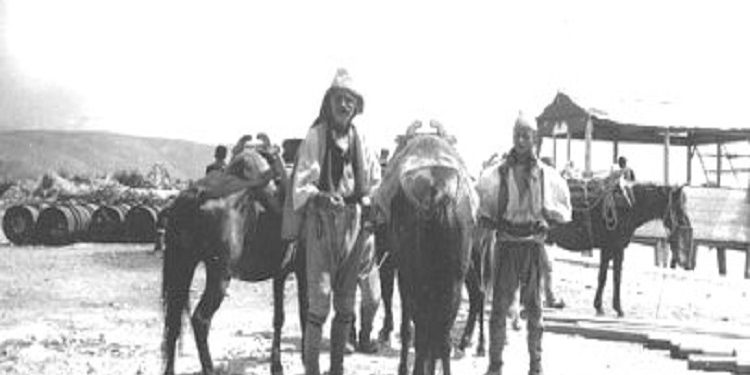
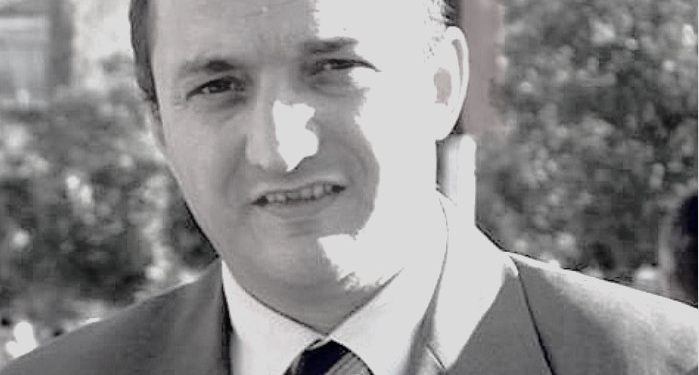
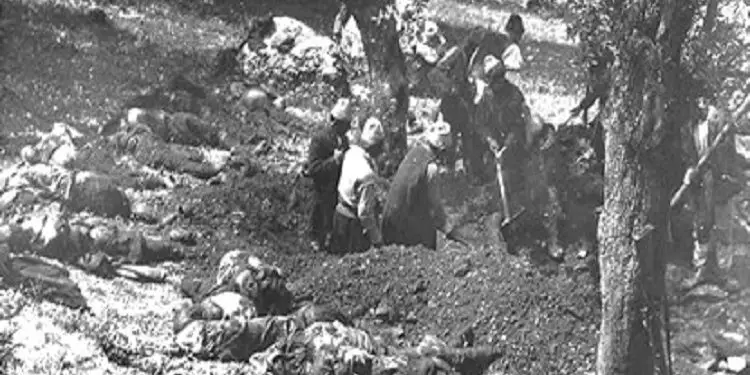
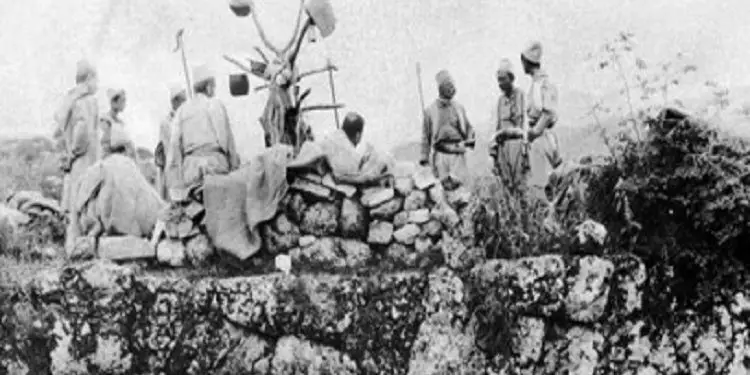
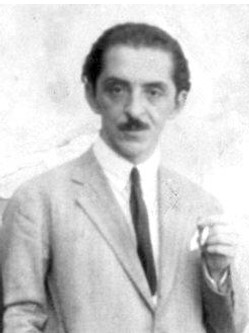
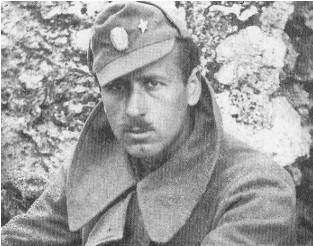
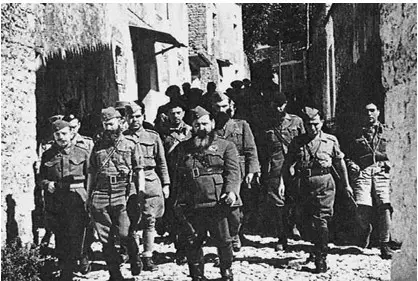



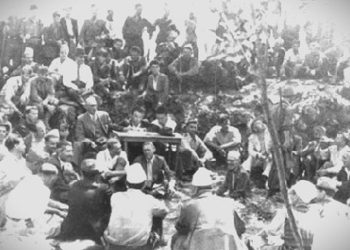
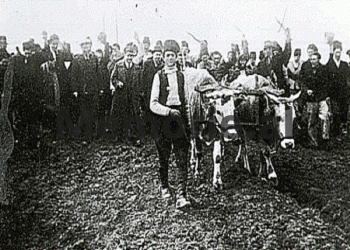
![“They have given her [the permission], but if possible, they should revoke it, as I believe it shouldn’t have been granted. I don’t know what she’s up to now…” / Enver Hoxha’s letter uncovered regarding a martyr’s mother seeking to visit Turkey.](https://memorie.al/wp-content/uploads/2026/01/Dok-1-350x250.jpg)
